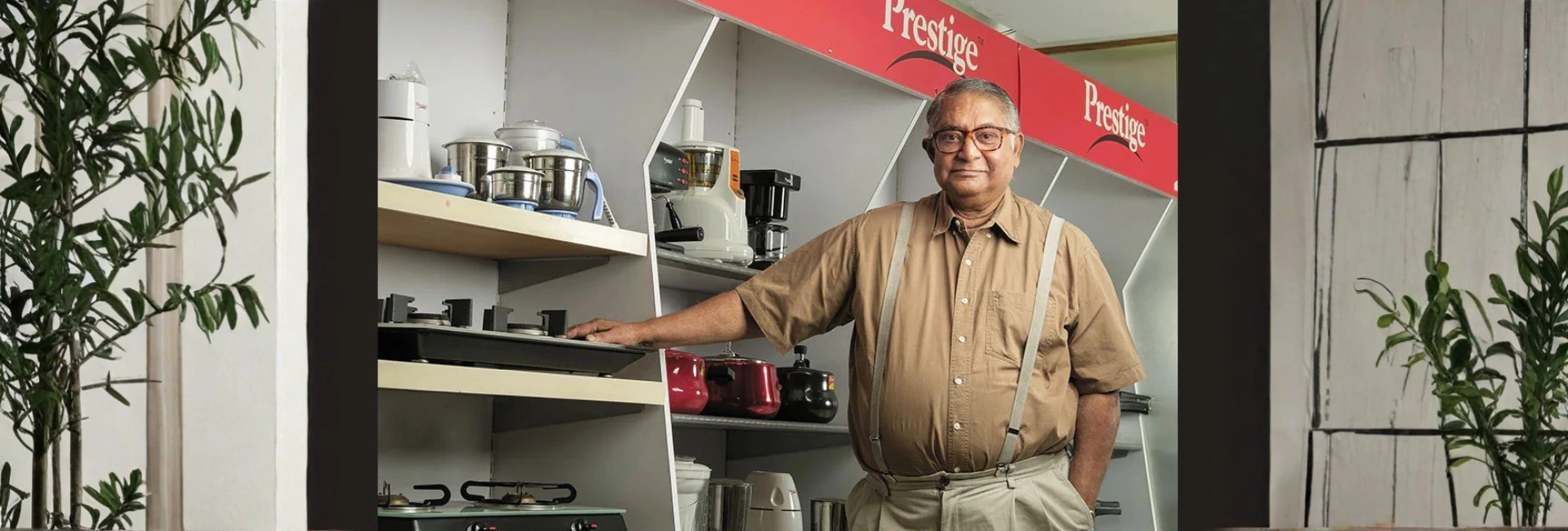(October 16, 2025) From returning from the US midway through his studies to save his family’s struggling company and turn it into India’s leading kitchen appliance brand, to revolutionizing the pressure cooker with a safety invention he chose not to patent, T.T. Jagannathan believed that protection in the kitchen should belong to everyone.
On October 10, 2025, India lost one of its transformative business leaders. T. T. Jagannathan. Known as TTJ to friends, colleagues, and countless dealers across the country, he passed away at the age of 77. As Chairman Emeritus of TTK Prestige and a scion of a storied business family, he leaves behind a company that he rescued from the brink, a brand that became synonymous with Indian kitchens, and a belief he often repeated that in business, common sense is a superpower.
The company’s statement called the visionary industrialist’s death “an irreparable loss.” T. T. Jagannathan’s influence is woven into the daily rhythm of millions of households that whistle with a pressure cooker’s assurance.
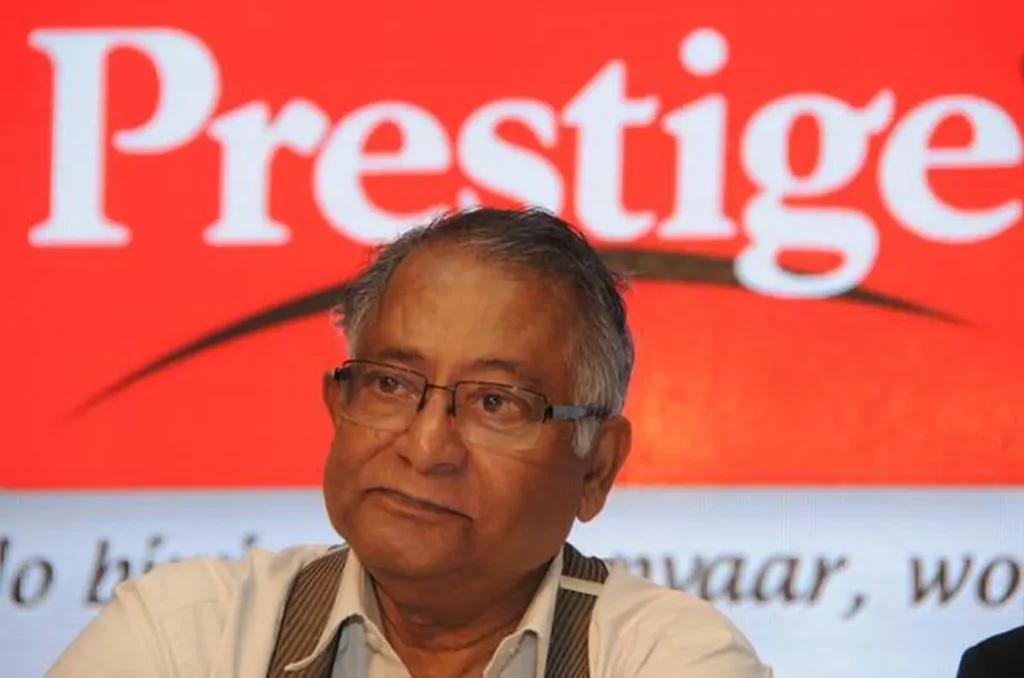
An IIT gold medalist who never planned to be a businessman
Born into the family of former Union Finance Minister T. T. Krishnamachari (TTK), Jagannathan excelled early as an IIT Madras gold medallist who headed to Cornell University to pursue a PhD in operations research. If life had followed his script, he would have become a professor.
Then in 1972, reality intervened. His parents, T. T. Narasimhan and Padma, visited him at Cornell with a stark message that the family business was sinking and borrowing at 40 percent interest. “I was an academic, not a businessman,” he would recall later, “but responsibility doesn’t wait for your résumé to catch up.” He returned to India with a promise to himself to steady the ship and pay back every rupee.
Those first years were not a turnaround story; they were a triage. He began with the group’s most loss-making division, Maps & Atlases, one among its many business ventures, and pulled it from a free fall by pivoting to commercial printing, matching capacity to revenue with the engineer’s discipline for constraints. It was a template he would reuse, fixing the biggest leak first, then moving to the next. “When the numbers scare you,” he liked to tell young managers, “don’t blink, break them into pieces you can solve.”
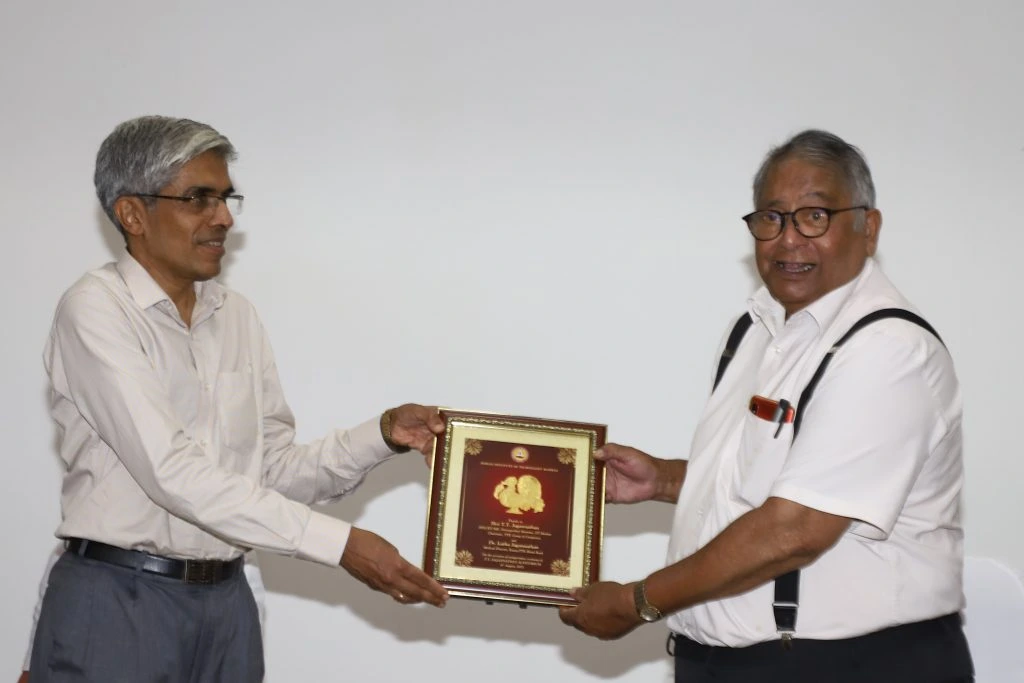
A distinguished IIT Madras alumnus (Gold Medallist in Mechanical Engineering, Class of 1970), T. T. Jagannathan donated ₹10 crore to his alma mater in 2021 to establish an endowment supporting research
Cornell’s greatest lesson was how to frame a question
If IIT Madras grounded him, Cornell rewired his problem-solving. “In India, exams gave you the data and asked for the answer,” he once said. “At Cornell, I had to define the question before I could attempt an answer. That’s life. That’s business.”
He treated every crisis like a poorly framed question. Tighten the problem, look for the variable that truly moves the system, and keep the solution idiot-proof. When people asked why he was obsessed over simplicity, he would smile. “Complexity is where mistakes hide. Simplicity is where customers live.”
The day the cookers stopped bursting
By the mid-1970s, the business that most urgently needed rescuing was also the one that would come to define him, the pressure cooker business. Prestige’s outer-lid cookers were losing trust as fake spare parts in the market turned a safety plug into a ticking hazard. The brand was bleeding credibility, and dealers kept back rooms filled with busted cookers as grim evidence.
Jagannathan went out to see the damage himself, listening to angry customers and skeptical retailers. “You can’t fix a kitchen problem from a conference room,” he’d say. “You fix it with your sleeves rolled up.”
What followed has now entered company lore. He conceived the gasket-release system, an elegant fail-safe measure that vents excess pressure by design, rendering counterfeit plugs irrelevant. It was the kind of fix engineers dream about because it solved the real problem, unreliable spares in a messy market, instead of blaming users. He spent months in the lab prototyping, cutting his fingers more than once, and refused to patent the invention. “If safety is a differentiator, let the whole market catch up, it raises the waterline,” he said. Prestige’s reputation recovered, and the brand would never again be defined by fear.
In advertising, he insisted on one north star, safety. The famous 1980s line, “Jo biwi se kare pyaar, woh Prestige se kaise kare inkaar?” (If you love your wife, how can you refuse Prestige?) became one of Indian advertising’s most memorable campaigns. It made a simple case that love at home begins with care and caution. He understood the social heartbeat of the Indian kitchen long before boardrooms coined the word “consumer insight.”
The turnaround that took 28 years
Turnarounds are often romanticized as sprints. Jagannathan made no such claim. He told the story plainly that the debt burden he inherited took until 2000 to extinguish. “It took me 28 years to pay it all back,” he noted with a shrug. The discipline that followed was textbook TTJ. Reinvest, diversify cautiously, and expand only when cash flows could carry the risk. From that point, the company’s upward arc felt inexorable, new categories, smarter design, and a culture that prized practical innovation over presentation gloss.
If his management philosophy had a single line, it was this, “Hire smart, teach them to frame the problem, then get out of their way.” He delegated decisively, asked for clear updates, and detested micromanagement. The humility was not a pose; he flew economy on personal trips, kept a modest office, and kept industry pageantry at arm’s length. “Success doesn’t need a spotlight,” he’d quip, “it needs a good P&L.”
Cooking first, business next
The moniker “Kitchen Mogul” amused him, he preferred “accidental businessman.” What he wore like a badge, though, was the apron. He learned to cook at eight and never stopped. He travelled with spices, fed colleagues on overseas trips, and had a wicked reputation for leaving a cheerful mess in any kitchen he touched. “If you don’t cook,” he would say with a raised eyebrow, “how will you notice where the product fails?” New product reviews at Prestige sometimes began with a tasting; he made sure managers could light a stove as confidently as they could read a spreadsheet.
His home rituals were as telling as his boardroom decisions. For every family birthday, he baked a dense, indulgent “Appa cake,” a tradition that evolved into “Thatha cake” as grandchildren arrived. Cooking was not just a hobby; it was his feedback loop with reality. “The best R&D lab is a busy kitchen,” he liked to joke, “it tells the truth in 20 minutes flat.”
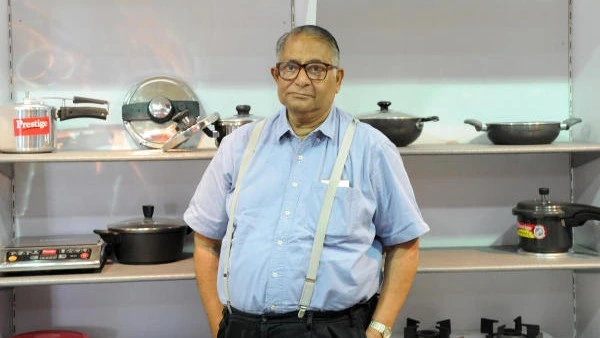
A family stitched together by music, study and steel will
Behind the business legend was a family that matched him note for note. He played violin and tennis in his youth, then switched to golf and bridge. The house heard as much Carnatic music as market talk; the extended family link to vocalist T. M. Krishna added its own cadence to dinner-table debates.
His pride in his sons was fierce but free of succession anxiety. He encouraged them to pursue their own callings. One went to Cornell like him, on to MIT, and into science, winning major recognitions along the way. “Companies need professionals,” he told well-wishers who expected a dynastic script. “Families need happy children. That’s the better legacy.”
Building a billion-dollar cookware story
Under his watch, TTK Prestige went from fragile to formidable. He sat on the board from 1975, served as managing director for 26 years, then executive chairman for 19 more, and eventually as non-executive chairman until March 2025, becoming the company’s longest-serving leader. Along the way, he pushed the product line beyond pressure cookers, into cookware, small appliances, and, in time, smart, connected devices that anticipated how India cooks today.
When asked why Prestige kept winning in a crowded market, he rarely mentioned “brand” or “distribution” first. He returned to design that solves problems you actually face at 7 p.m., spills, uneven heat, clumsy lids, overcooked dal. The celebrated “double-lid” ideas and one-touch programs were not tech for tech’s sake; they were empathy engineered.
He captured the journey in his book Disrupt and Conquer:
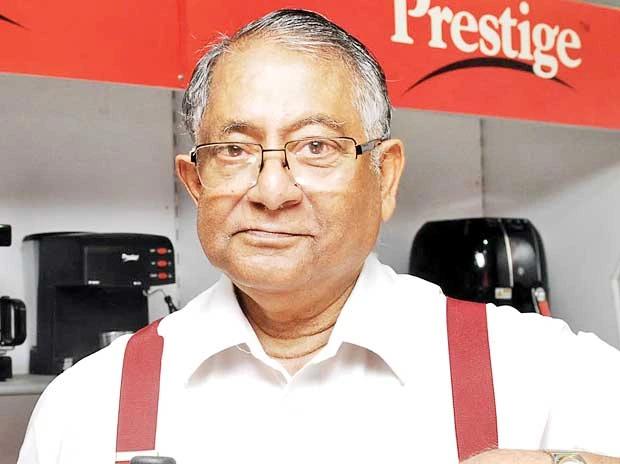
The TTK spirit of commerce, care and community
The wider TTK Group he inherited and helped reshape has always been more than cookware. From healthcare and biomedical devices to maps and consular services, its portfolio reads like a century’s worth of Indian aspirations. The group’s philanthropic footprint, through blood banks, schools, and addiction research, repeats a family instinct, to build institutions that outlast you.
TTJ’s own instinct for restraint, growing only when debts were cleared and diversifying only when core engines were humming, gave that portfolio ballast. “Cash is courage you can count,” he once told a young CFO. “Good quarters are luck; good decades are discipline.”
Why his leadership felt different
What set him apart was not merely the inventor’s streak or the turnaround’s patience. It was an unusual combination of clarity and humility. He never pretended policy headwinds hadn’t hurt, the old small-scale reservation caps, the aluminium allocations, the license maze, but he refused to make them his narrative. “Obstacle is a word we use before we’ve solved the problem,” he’d grin. “Afterwards, we call it a case study.”
He delegated early and cleanly, and when he was convinced you could do the job, he gave real authority. “He taught people to think like owners,” an executive said, “and then he treated them like owners.” Few things moved him as quickly to anger as a sloppy decision that ignored the customer’s lived reality. Few things made him as visibly happy as a field report about a small design tweak that saved a home cook five minutes.
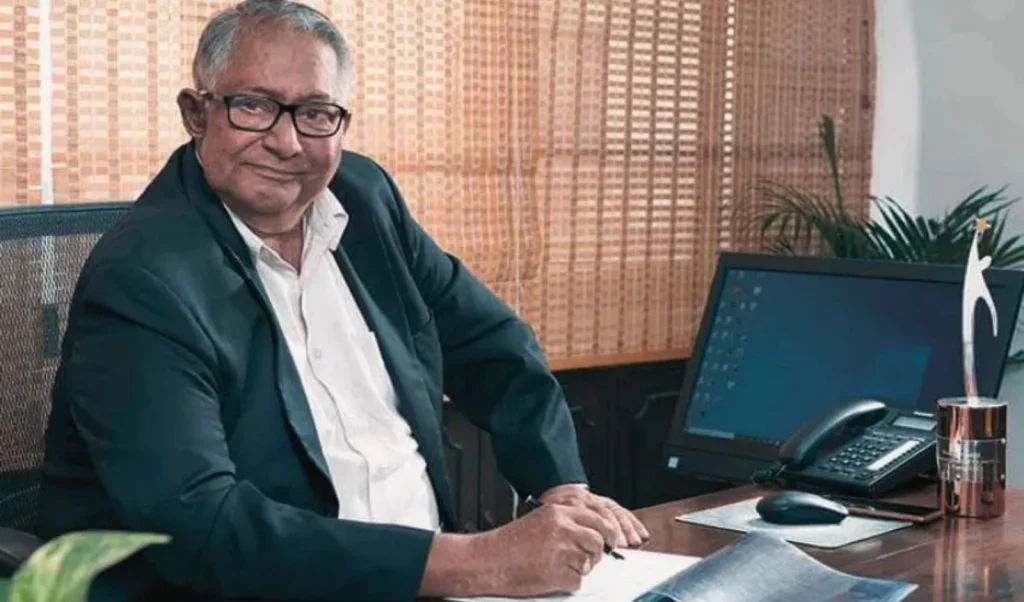
“I’ll go with my boots on”
Even after he stepped back from executive roles in 2019 and then from the chair in 2025, he kept a desk and a routine. Asked about retirement, he offered a line that colleagues now quote with a lump in their throat. “I’ll go with my boots on. I’m not waiting for it, and I’m not afraid of it.” It was not bravado. It was a calm preference for usefulness over idleness.
His passing closes a remarkable loop. A scholar who became a builder, an accidental CEO who re-taught an old company how to be new, a tinkerer who knew safety is the first feature, and a cook who believed innovation begins with the sound of a safe lid lock.
The legacy in one sentence
If a single line must do what 50 years of the visionary entrepreneur’s work achieved, let it be this. T. T. Jagannathan made modern Indian kitchens safer by insisting that engineering, empathy, and everyday common sense belong at the same table.
ALSO READ: For H-1B workers wondering ‘what if?’: Inspiring journeys of founders who returned to India
